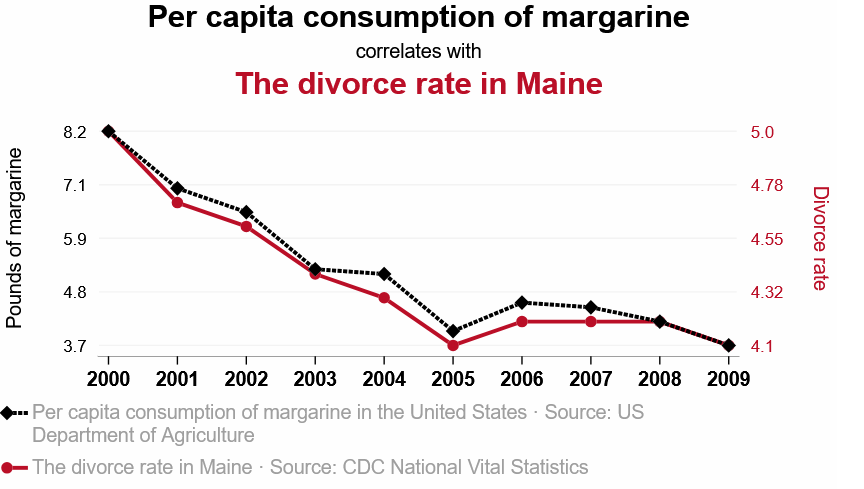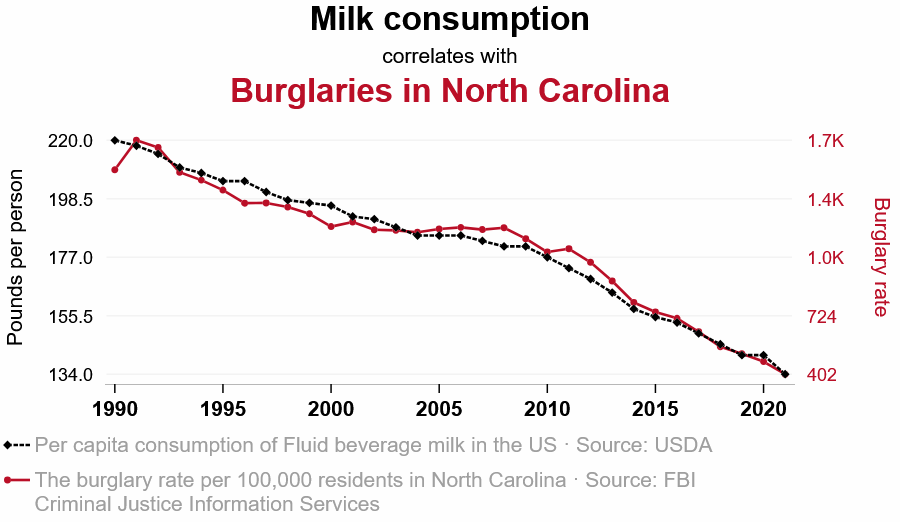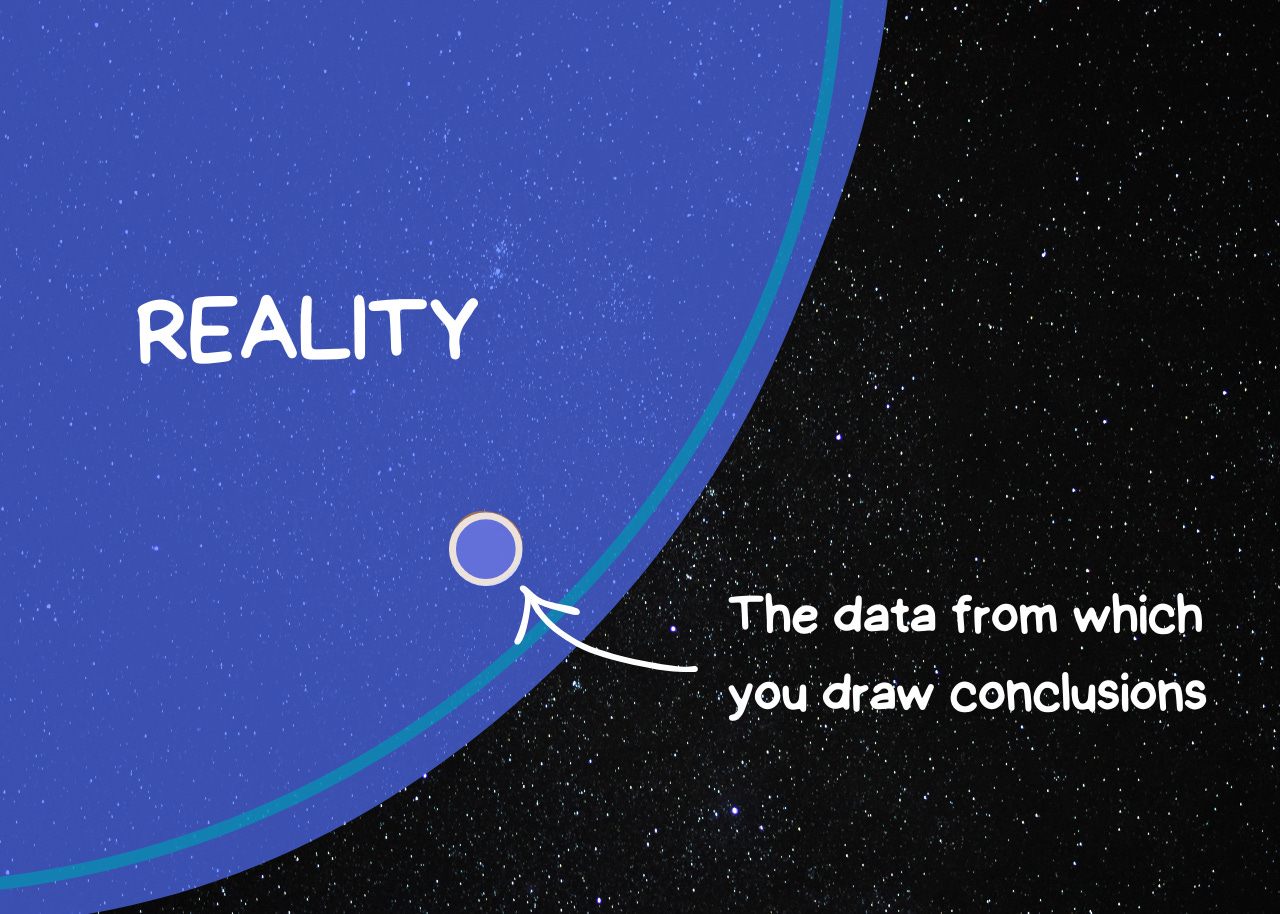Appearances are deceptive
Correlation and causation: a common mistake in understanding the world
🏷️ Categories: Mental models, Mathematics, Decision making and biases.
Humans have an uncontrollable urge to make sense of the unknown.
For example, in ancient cultures, eclipses were often associated with supernatural forces or omens of catastrophic events. I recently discovered that in Hinduism, eclipses are explained through the legend of Rahu and Ketu, two demons who cause eclipses by "devouring" the Sun and the Moon. According to the myth, these demons were punished for trying to steal the elixir of immortality from the gods.
Since then, Rahu and Ketu have relentlessly pursued the Sun and the Moon in order to take revenge.
Traditionally, Hindus protected themselves from the arrival of evil by staying at home, reciting sacred mantras and taking baths to purify their bodies. This respect for eclipses is another example of how, regardless of culture or time, we feel an uncontrollable urge to explain the world.
Today we know that an eclipse is not a divine sign or a sign of catastrophes, but we continue to fall into erroneous assumptions and bad predictions on a daily basis; it is innate.
Let's look at some typical mistakes that we make without realizing it.
Correlation does not imply causation
This is one of the most common confusions and leads to the most misunderstandings.
Correlation implies that two variables occur in a similar way.
Causation implies that one variable directly produces the other.
For example, the average consumption of margarine per capita in the US has a 99% correlation with the divorce rate in the State of Maine (Vigen, 2014).
This doesn't mean that ditching margarine for butter is going to save your marriage.
When you see causality where there's only correlation, you misinterpret the world and make bad decisions. Maybe the example above was funny, but when it's not so absurd we can be wrong without even realizing it. Maybe a study says that those who spend more time on social media have more stress. The quick conclusion would be: “more social media = more stress.” In reality, things aren't that simple…
Maybe more stressed people (for whatever reason) use social media more as a way to unwind. Just the opposite of what you thought.
Maybe both factors have a common cause, like a busy lifestyle, which generates more stress and more social media use. They are not the cause of stress.
Social media could be the opposite of what you thought or not the cause at all.
Our speed in jumping to conclusions plays tricks on us.
There is a 98% correlation between average milk consumption per capita and home burglaries in North Carolina. More than 30 years of data proves this.
This does not mean that the best security measure is to drink more milk.
Lactose does not deter burglars.
Things can go back to normal on their own
Imagine someone who gets the flu, is given an unconventional treatment, and then recovers. Some people will say that the remedy was effective, but the reality is that most people recover from the flu without problems.
The phenomenon is called regression to the mean and occurs when an abnormal fact (a sick person) returns to normal on its own (recovers) (Dodge, 2003).
If we really want to know how good the treatment is, we would have to do comparative studies of thousands of people with the same age and health condition so that the cases were comparable and then analyze the recovery times.
1 fact alone does not confirm or deny anything.
The less information, the more doubtful the conclusions are and the more we rely on our previous beliefs to explain what happens. That is when we fall into confirmation bias. Maybe no one believes that butter will save their marriage, or that drinking milk will keep burglars at bay, but maybe someone will say that social media causes stress just because they see a relationship that sounds good to them.
Maybe it causes stress, but it takes a lot more than a correlation to explain what happens between stress and social media.
What we see is often the tip of a huge iceberg.
✍️ Your turn: Did you believe something that you later found out wasn't true? We're all superstitious, at least a little. I think it's inevitable.
💭 Quote of the day: «Knowing what to expect next gives you a sense of security.» Hillary Rodham Clinton, It Takes a Village.
See you soon, hugs! 👋
References 📚
Dodge, Y. (2003). The Oxford Dictionary of Statistical Terms. Oxford University Press, USA.
Vigen, T. Milk consumption correlates with Burglaries in North Carolina (r=0.986). https://www.tylervigen.com/spurious/correlation/24448
Vigen, T. (2014, mayo). Per capita consumption of margarine correlates with The divorce rate in Maine (r=0.993). https://tylervigen.com/spurious/correlation/5920












Love this. Reading the news can also cause stress ... maybe. Depends on the stories, the media bias, and the reader's need to ingest only what they want to see.
Meanwhile, my daughter told me about a class she was teaching where a young woman didn't understand the difference between causal and casual relationships. Val said, that casual relationships can often lead to causal situations. 😁 It gave the student something to think about.
This is an important and difficult lesson to learn. The same thing happens in medicine, "I did Y and then felt better hence Y cured me" when in reality the person could have felt equally good had they done nothing. More over, Y could have even delayed them feeling better and yet curing powers are associated to Y.
In our line of inquiry this is indeed a very difficult question. Just this week we published an article examining the rate in violent crimes in three US cities. Several press articles have hailed and praised the programs implemented in Detroit, Baltimore, and San Antonio yet there has been a decline in violent crimes in places where there were no changes. When there are many factors and when you cannot create replicates it is much harder to make inferences. In fact, we may often by making the wrong ones and thus designing solutions that will not ameliorate the issue. Given that these alleged solutions are proposed and implemented but they were based on the wrong assumptions -- they may end up excarbating rather than ameliorating the problem.